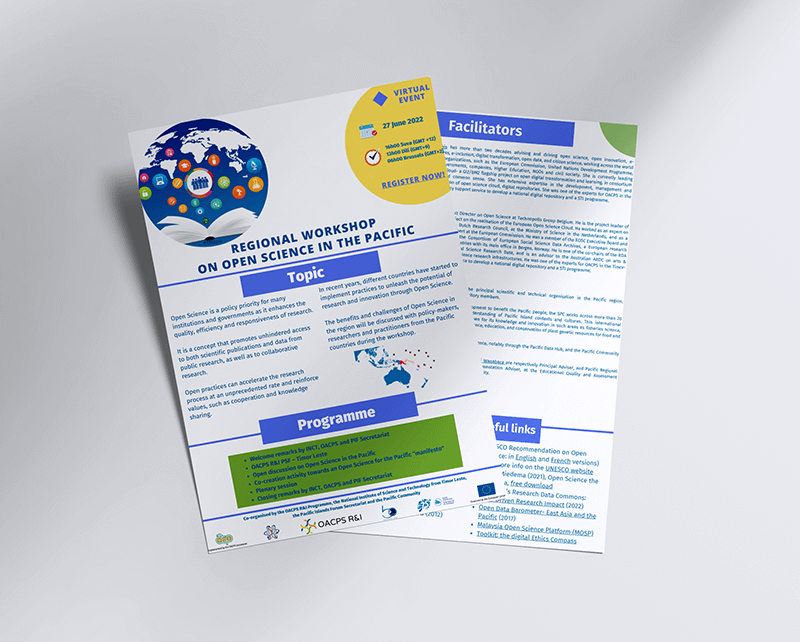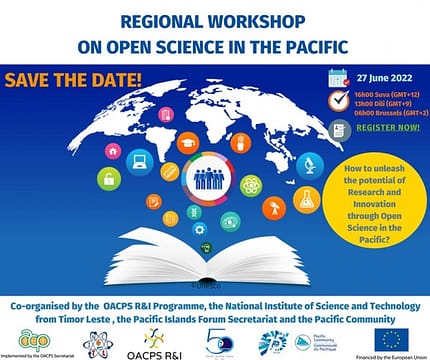INTRODUCTION
The OACPS Research and Innovation Programme [https://oacps-ri.eu/en/about/] is an initiative funded by the European Union and implemented by the Organisation of African, Caribbean and Pacific States (OACPS).
One of its projects is the work undertaken at the request of the National Institute for Science and Technology / Instituto Nacional de Ciência e Tecnologia (INCT), Timor-Leste.
The project entailed two feasibility studies. First, for setting up a science, technology and innovation (STI) policy framework and prioritised programme, and second, for the creation of a National Digital Repository.
My role was to be one of the experts and to advise on both the STI policy framework and the National Digital Repository. We set up the studies by doing desk research and working on the primary and secondary data received from INCT and other national sources. Online interviews and questionnaires were used to substitute for planned face-to-face meetings in Dili (due to COVID-19). We organized several meetings and workshops, and a national team was involved in writing the report.


THE PROJECT
The project had a tight schedule, but due to COVID there was a lot of improvisation: consultations, interviews and workshops were online. This required quite a few adjustments in the format and the improvisational capacity of the experts and the participants.
My focus was on the national repository. Together with the client, we worked towards an operational plan, including a centralized, multilingual repository, following a minimum viable approach (start with publications, later expand to data and possibly software), the ability to include relevant international publications – for researchers but also for education. We built on the relationship with stakeholders (telecom, ministries, universities, national archive, national library, universities and their libraries). Parallel to the international expert team, a national team was set up under the leadership of INCT that contributed ideas and co-creation. Training and creating awareness was also very important, because open science and open access are new concepts that require explanation.
Our advice is now being elaborated into an operational plan for which the first steps were given in the report.
